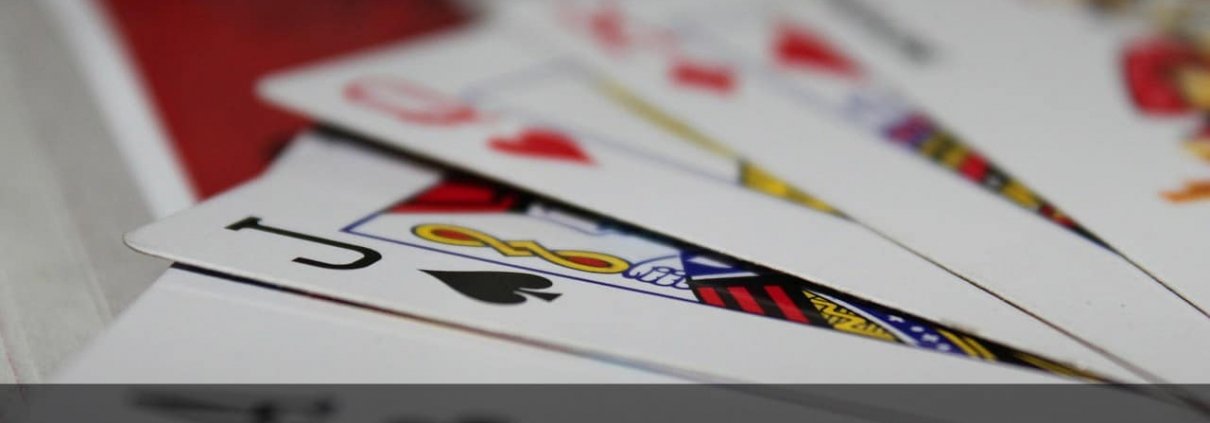The Information Game
THE INFORMATION GAME … By Cardshark5
Happy New Year and welcome to 2014 everyone! I hope 2013 was a wonderful and prosperous year for you all. The New Year is a time when many people take the opportunity to make resolutions and fresh starts. I have never been one for resolutions myself but when it comes to poker and improving my game I make an exception. No matter how good we get and how much we learn as poker players we can always improve and we can always get better. People will naturally re-evaluate and analyze things when they are losing but you also can become complacent about your poker game when things are going well. A very good poker friend of mine once told me if you stop trying to improve your game the others that are working hard will surpass you. With that in mind one area that most everyone can improve across the board is what I like to call the Information Game.
Some players do it subconsciously and others do it with intention and purpose but I strongly believe that showing your hand as well as talking about your line of thinking after the conclusion of a hand is a huge mistake and a leak in one’s game. The most common times I see these mistakes are after winning pots. A player will bet on the flop or turn perhaps making what the rest of the table may perceive as a continuation bet causing their opponent(s) to fold. They will then flash or expose one card or both showing top pair or better as if to say to everyone: I had it! I’m not bluffing! I play solid! If you’re someone that finds yourself doing this ask yourself why. If it’s because you care what other players at the table think about you and your game you may want to adjust your priorities. You shouldn’t care how your opponents perceive your level of play; in fact you want them to think that you are worse than you actually are as that will earn you more money in the long run. I would much prefer to be known as the luckiest player at the table as opposed to the best player at the table…which one do you think is likely to get more action?
If on the other hand you’re showing cards with the intention of bluffing or playing a similar hand differently you’re still giving up more than you’re gaining. First of all the rest of the table gets to see your hand not just your opponents in that particular hand. They will all see what you played how you played it and in what position. Secondly the players that pay attention enough to take notice of what you played and how you played it will not be fooled by you when you attempt to mix it up and deviate from the style of play that you exposed. They know exactly what you are trying to do. The players that are not as sophisticated will not be changing how they play no matter what you do so it ends up being a waste of time on them as well. Not showing your cards is one of the easiest things you can correct to improve your game.
Another common mistake in the Information Game is someone at the table explaining their thought process of an entire hand or telling someone why they played something that at first glance appears that they should not. If you catch yourself doing this at the table again ask yourself why. If you’re looking to discuss lines of thinking and genuinely trying to solicit poker advice you shouldn’t do it at the table! Make a mental note of the hand and have one or two poker friends that you respect and trust talk with you about it away from the table. The players at the table are the people you are trying to beat; don’t share with them! Letting a good player know exactly how you think about a hand or a situation is one of the single worst things you can do. If you find yourself explaining why you played a certain hand or why you played it a certain way because you got lucky or are trying to save face you should stop. Maybe you made a mistake and got lucky maybe you didn’t. Maybe you were balancing your range or maybe you had a read on a situation. Whatever the reason is keep in mind that when your opponents think you play differently than you actually do it is profitable for you. They will be making decisions based on flawed or incomplete information which in turn means mistakes for them and more chips for you. This is another simple and quick fix for your poker game.
As I played my first session of 2014 I made the decision to eliminate these negative table behaviors from my poker game as I am just as guilty as anyone else of making these mistakes. In 2013 I would sometimes catch myself showing a card or discussing strategy at the table when I knew that I shouldn’t. I knew better and yet I still committed these poker sins occasionally. If you join me and adopt my poker resolutions you will become more self aware at the table and instantly become a better poker player. Until next time see you at the tables!


